Subject Pronouns in ARABIC With Examples (Essential Guide)
Advertisements
Learning the structure of Arabic pronouns is very important because it is used in every day conversation. The more you master it, the closer you will be to learning Arabic.
In this lesson, we will learn all the subject pronouns in Arabic, their usages, examples and more.
Subject Pronouns in Arabic
Arabic subject pronouns are a type of personal pronoun that indicate who or what is performing the action of a verb. Thus, with three numbers, two genders, and three persons, there are a total of twelve grammatical persons, each of which has at least one Arabic subject pronoun.
The twelve subject pronouns in Arabic are:
- I أنا (ana)
- you (masc.) انتَ (anta)
- you (fem.) انتِ (anti)
- he هو (howwa)
- she هي (heyya)
- we نحن (naHnu)
- you أنتما (antuma)
- they هما (humaa)
- you (masc.) أنتم (antum)
- you (fem.) أنتن (antunna)
- they (masc.) هم (homa)
- they (fem.) هن (hunna)
In Arabic, the subject pronoun is more specific than in many other languages; for example, there are different ways to say “you” in Arabic depending on who you’re addressing it to.
Advertisements
For example, to address two people, use a different subject pronoun than you would for a single person; also, if you’re addressing more than two people, use a different form. Finally, the majority of subject pronouns have both feminine and male forms.
READ ALSO Arabic Sounds That Don’t Exist In English
Generally, Arabic subject pronouns can be classified according to:
Conversation – الْكَلامُ:
- Third-person – الْغَائِبُ
- Second person – الْمُخَاطَبُ
- First-person – الْمُتَكَلِّمُ
Gender -الْجِنْسُ:
Advertisements
- Masculine – المُذَكَّرُ
- Feminine – الْمُؤَنَّفُ
Number – الْعَدَدُ
- Singular – الْمُفْرَدُ
- Dual – المُثَنَّى
- Plural – الْجَمْعُ
Here is the list of all the subject pronouns in Arabic:
| Arabic Subject Pronouns | Transliteration | English |
| أنا | ana | I |
| انتَ | anta | you (masc.) |
| انتِ | anti | you (fem.) |
| هو | howwa | he |
| هي | heyya | she |
| Dual | ||
| نحن | naHnu | we (two persons) |
| أنتما | antuma | you (two persons) |
| هما | humaa | they (two people) |
| Plural | ||
| نحن | naHnu | we |
| أنتم | antum | you (masc.) |
| أنتن | antunna | you (fem.) |
| هم | homa | they (masc.) |
| هن | hunna | they (fem.) |
Now let’s look at some examples using these subject pronouns.
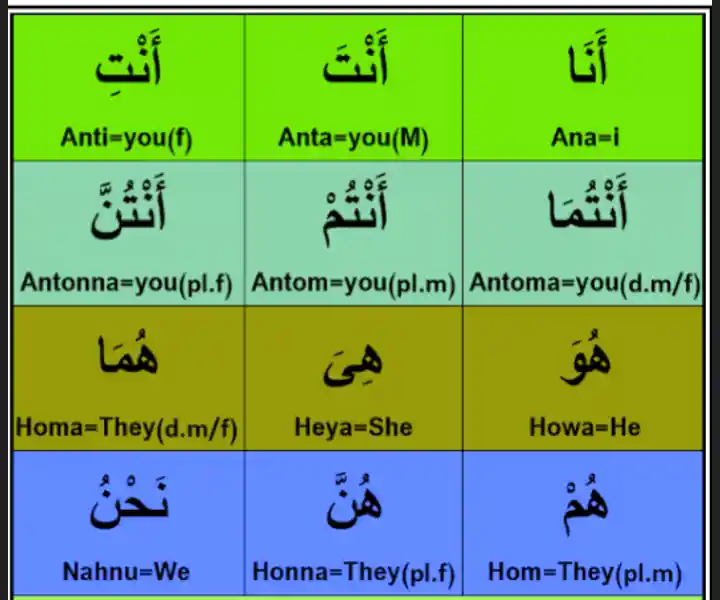
How To Say I in Arabic
The Arabic word for I is pronounced ana and written as أنا, for example
- I am a teacher ….. أنا مُدَرّس
- I am sick ….. أنا ﻣَﺮِﻳﺾ
- I am in the classroom ….. أنا في الفصلِ
How To Say You In Arabic
There are different ways to say “you” in Arabic depending on who you’re addressing it to.
Single Male
To say you for single person (male), we use the word anta which is written as انتَ in Arabic, examples:
- You are hardworking ….. انتَ مجتهد
- You are doing good ….. انتَ بخير
- Are you in secondary school? ….. هل انت في المدرسة الثانوية؟
You For Single Female In Arabic
To say you for single person (female), we use the word anti which is written as انتِ in Arabic, examples:
- You are beautiful ….. انتِ جميلة
- You are a new student ….. انتِ طالبة جديدة
- Are you new in this school? ….. هل انتِ جديدة في هذه المدرسة؟
Dual
To address two people, we use a different subject pronoun than you would for a single person. The subject pronoun for dual in Arabic is the same for both male and female. It is pronounced as antuma and written أنتما.
- You are beautiful ladies ….. أنتما جميلتان
- You are hardworking students ….. أنتما طالبان مجتهدان
- Are you engineers? ….. هل أنتما مهندسان
You Plural
If you’re addressing more than two people, we use a different form of you for feminine and masculine.
The Arabic word for you (masculine plural) is pronounced antum and written as أنتم.
- You are hardworking students .. أنتم طلاب مجتهدون
- Are you engineers … هل انتم مهندسون
- Are you new teachers? … هل أنتم مدرسون جدد
The Arabic word for you (feminine plural) is pronounced antunna and written as أنتن.
You To Say He In Arabic
The Arabic word for he is pronounced Huwa and written as هو.
- He is a doctor ….. هو طبيب
- He is my friend ….. هو صديقي
- He is my brother ….. هو أخي
How To Say She In Arabic
The Arabic word for he is pronounced heyya and written as هي.
- She is a teacher ….. هي مدّرسة
- She is a doctor ….. هي طبيبة
- She is from India ….. هي من هند
How To Say They in Arabic
There are two ways to say they in Arabic, the masculine form is pronounced hum and written هم and the feminine form is written as هن and the pronunciation is hunna.
How To Say We in Arabic
The Arabic word for we is pronounced as naHnu and written as نحن there is no difference for both male and female, examples:
- We in the garden ….. نحن في الحديقة
- We are from Japan ….. نحن من اليابان
- We are new students ….. نحن طلاب جدد
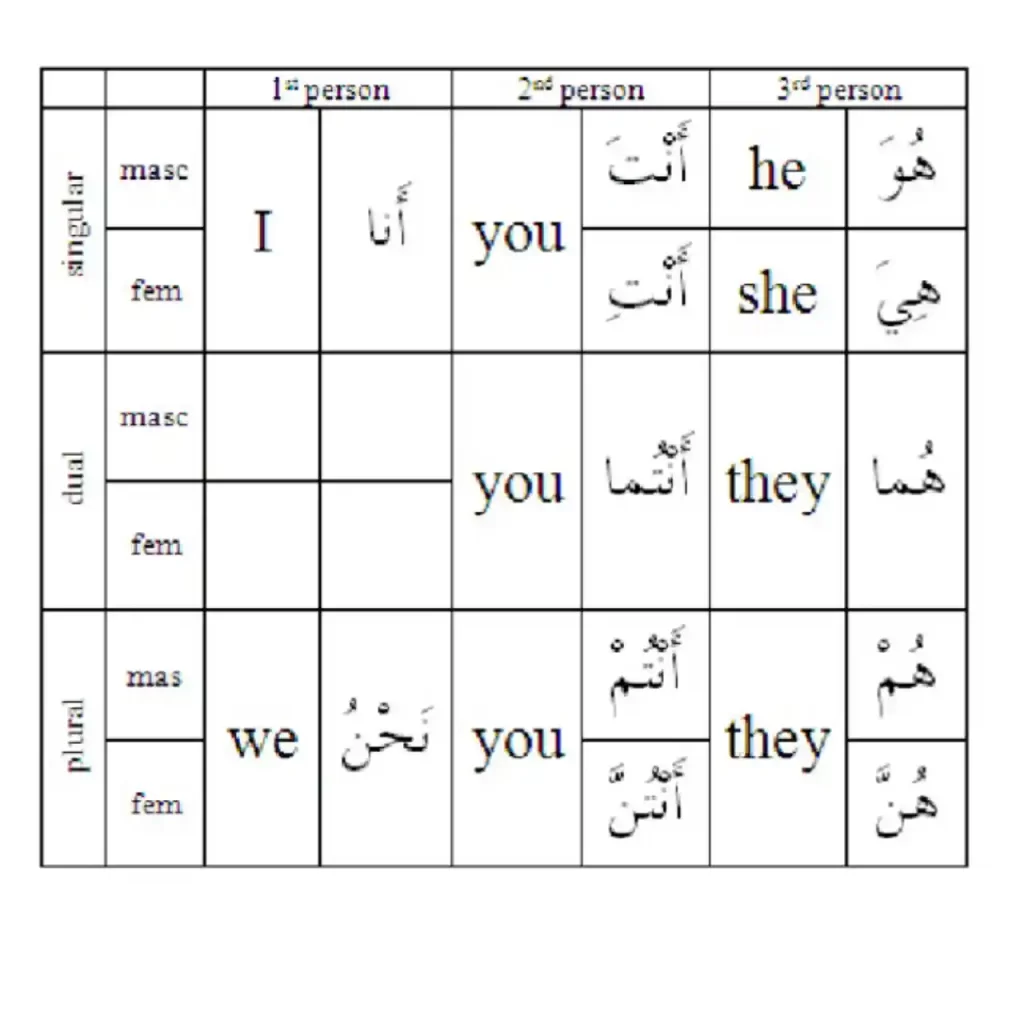
Conclusion
The subject pronouns in Arabic are fairly easy to learn as there aren’t as many variations to them in comparison to the conjugation of different verbs in Arabic. Once you learn these rules, you will be able to use them in your speech, writing and reading without worry.
Advertisements

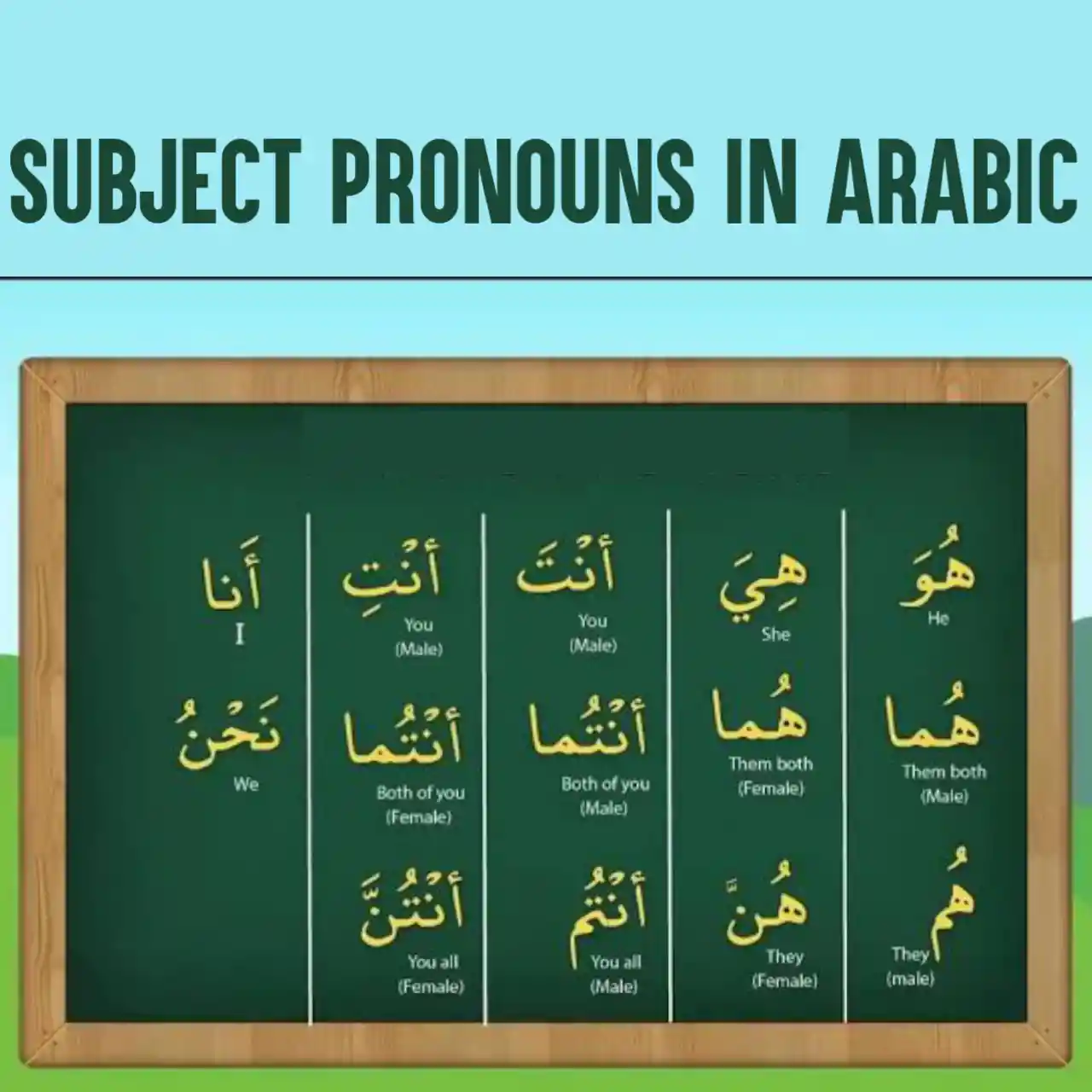
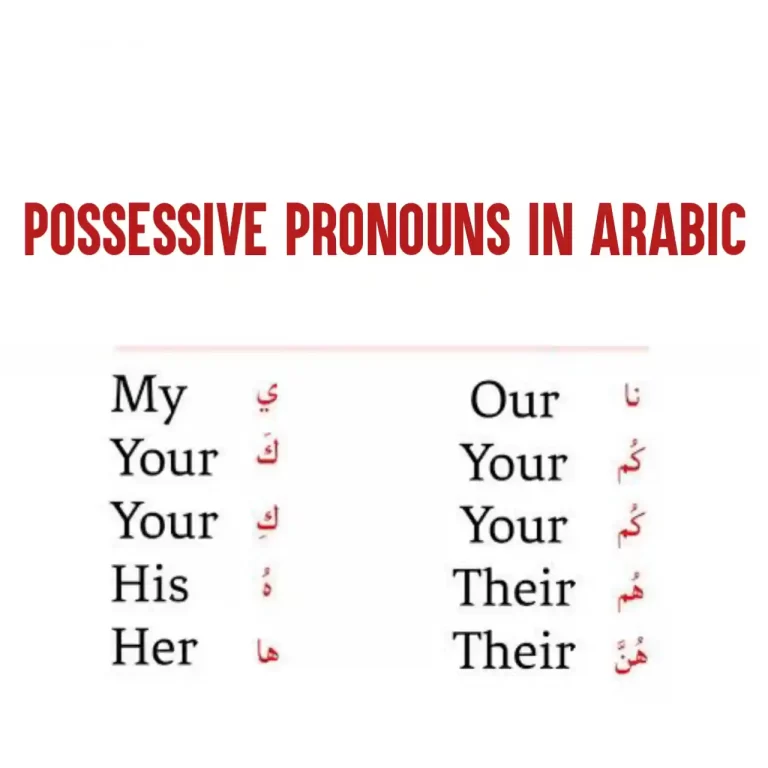

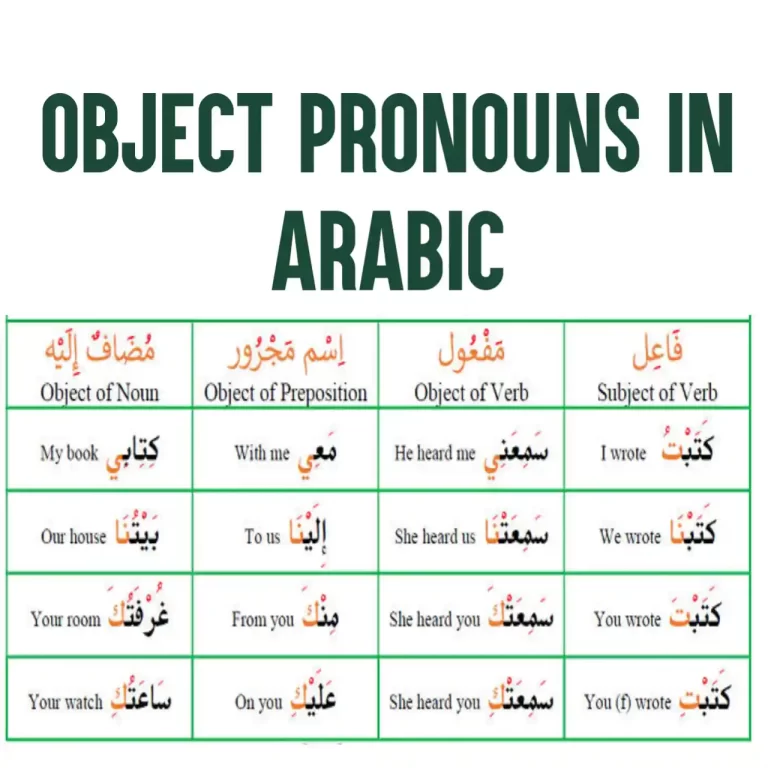
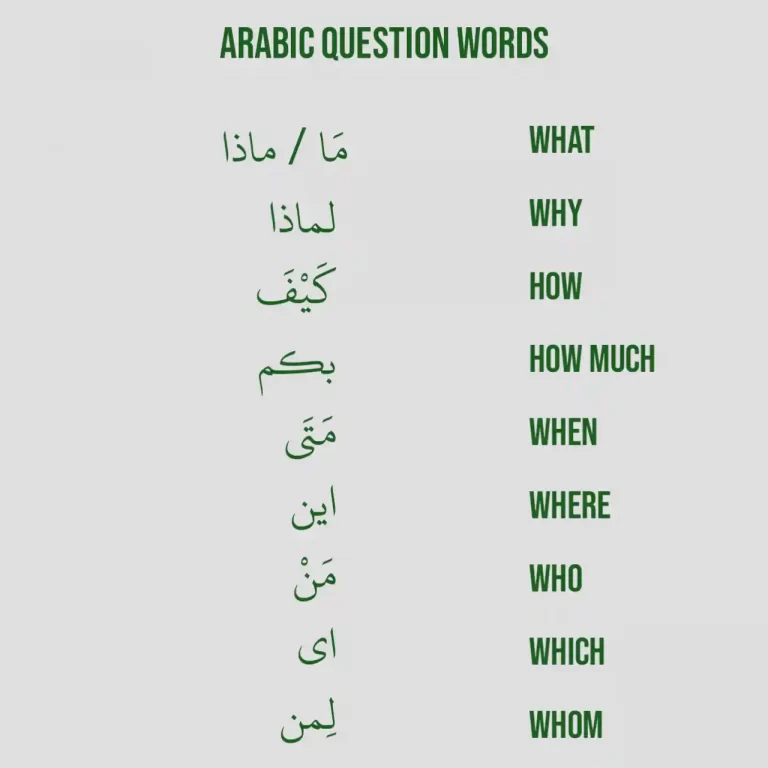
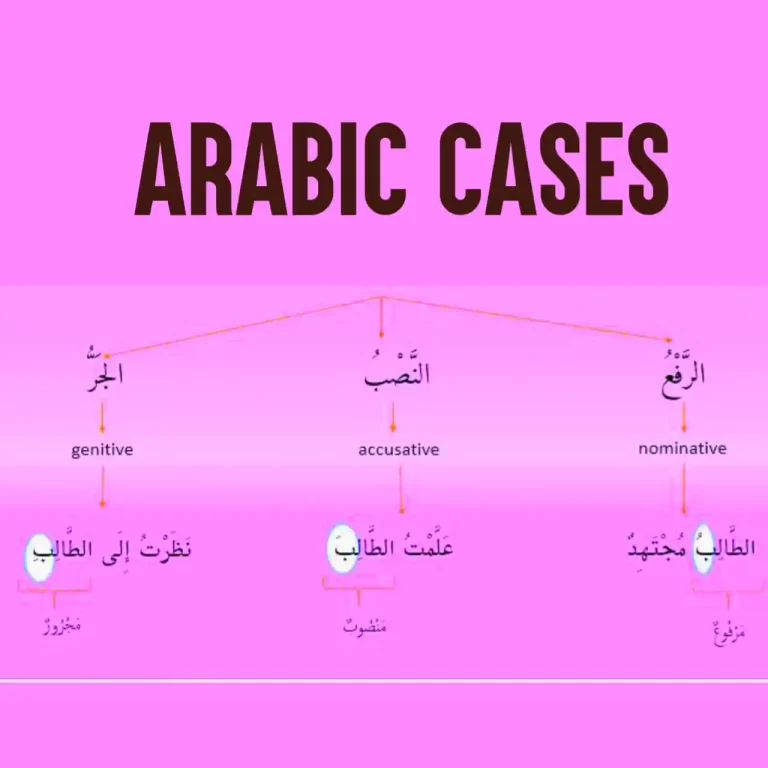
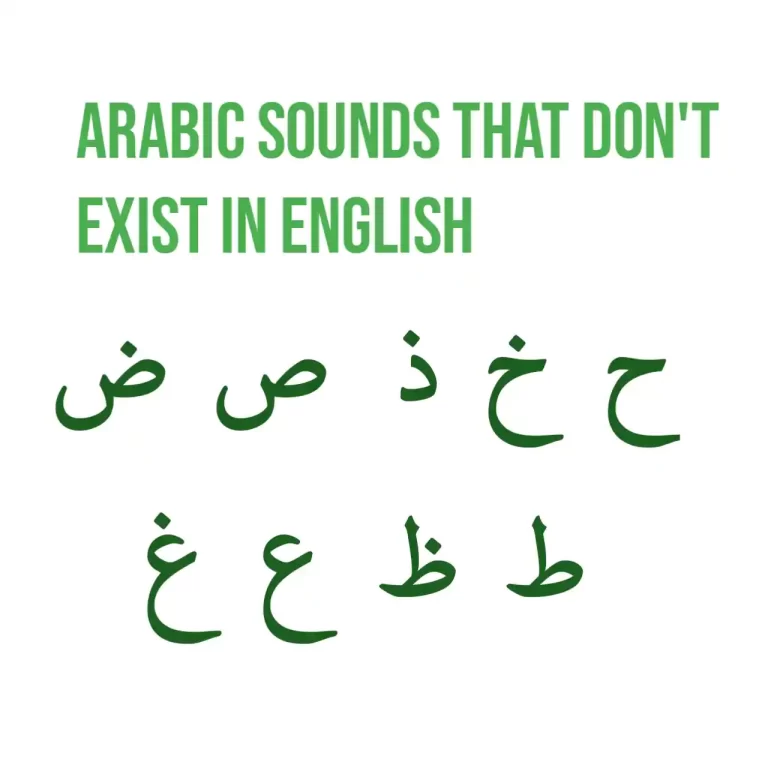
One Comment